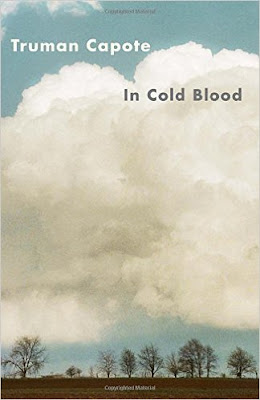Blazing Combat (1965-66/ Collected 2010): written by Archie Goodwin and others; illustrated by Reed Crandall, Joe Orlando, Wally Wood, Alex Toth, and others: Having made its mark with B&W horror comics in a magazine-sized format with Creepy and Eerie, Warren Publishing turned to war comics with Blazing Combat. Freed from the constraints of the Comics Code Authority (CCA), Blazing Combat was, like Eerie and Creepy, a return to the more studied and downbeat comics publications which EC Comics towered over aesthetically in the early 1950's prior to the implementation of the CCA.
A young writer-editor named Archie Goodwin wrote or co-wrote all the Blazing Combat stories that exist. Only four issues appeared, as sales were direly affected by a military PX boycott because it was felt by TPTB that Blazing Combat was anti-American. A lot of that weight fell on the single finest story in Blazing Combat's brief but potent run, "Landscape" by Goodwin and artist Joe Orlando. It's a brilliant, sad, reflective piece about the Viet Nam War and it stands as one of the ten great short-form American comic-book war stories.
The rest of the volume ranges from excellent to pretty good. As Goodwin notes in a previously published interview included with the collection (Goodwin died a decade before Blazing Combat was collected), his one major slip-up was a panel in which a character loads a mortar upside down (!). But otherwise the marvelous artwork and terse, only rarely too-preachy writing make this volume a must-own for readers of comics and war comics especially. Highly recommended.
The Genocides by Thomas M. Disch (1965): It's 1980. Earth has been under siege for nearly eight years by giant, fast-growing plants. The cities have fallen. The environment is collapsing as the plants destroy all other plant species and the animals that rely upon them as a result. Basically, humanity has become a rat hiding in fields of 600-foot-tall corn. And now whoever or whatever sent the plants has sent out the exterminators.
To say that Thomas Disch's first novel is an astonishingly bleak end-of-the-world novel is an understatement. We begin in terrible shape. Things don't get better. The plot focuses on a small Minnesota farming community on the shores of Lake Superior. Well, not so much shores. The plants have been relentlessly draining the Great Lakes for years.
So the town of Tassel, much of its original location overrun, has moved to the newly draining bottom of Lake Superior. There, Anderson, the Christian fundamentalist patriarch of the town, attempts to push back the plants and feed his town by growing corn. Just keeping the corn going requires a maximum effort by the village. Anderson believes they are being tested by God. But if they are, then God has gone silent. Or his answer is simply 'No.'
Disch invests this short, terse novel with effectively chosen moments of Biblical imagery and language and the occasional quote. But The Genocides is about the failure of all of humanity's institutions in the face of a sublime and indifferent menace, not a world in which a Christian God actually exists. Or any other gods.
The occasional scene of terror gives way to scenes of fumbling, racing panic. Our protagonists can only flee or die. Or flee and die. It's a rich, full life. Their numbers dwindle. Winter comes. Internal tensions begin to destroy Tassel almost as effectively as the invasion. Will whatever is behind all this ever show its face? Good question.
Even at this young age, Disch was a skilled stylist and an occasionally sardonic chronicler of human frailties. Some of Anderson's choices as a leader are understandable yet almost unspeakably grotesque, none moreso than a sort of Uber-Calvinist imitation of communion. We may become invested in whether or not some of the other characters survive, but it's an investment kept at a remove: it's doom alone that ultimately counts.
Disch was never known as a technically inclined science fiction writer, but the science of The Genocides still seems ruthlessly pragmatic and sound. The plants, devoid of personality and agency, nonetheless become an extraordinarily effective foil for humanity's own inhumanity, and for humanity's world-reshaping mistakes. The Earth is at the mercy of the ultimate invasive species. The crops must grow. The weeds and the vermin must go. Highly recommended.


